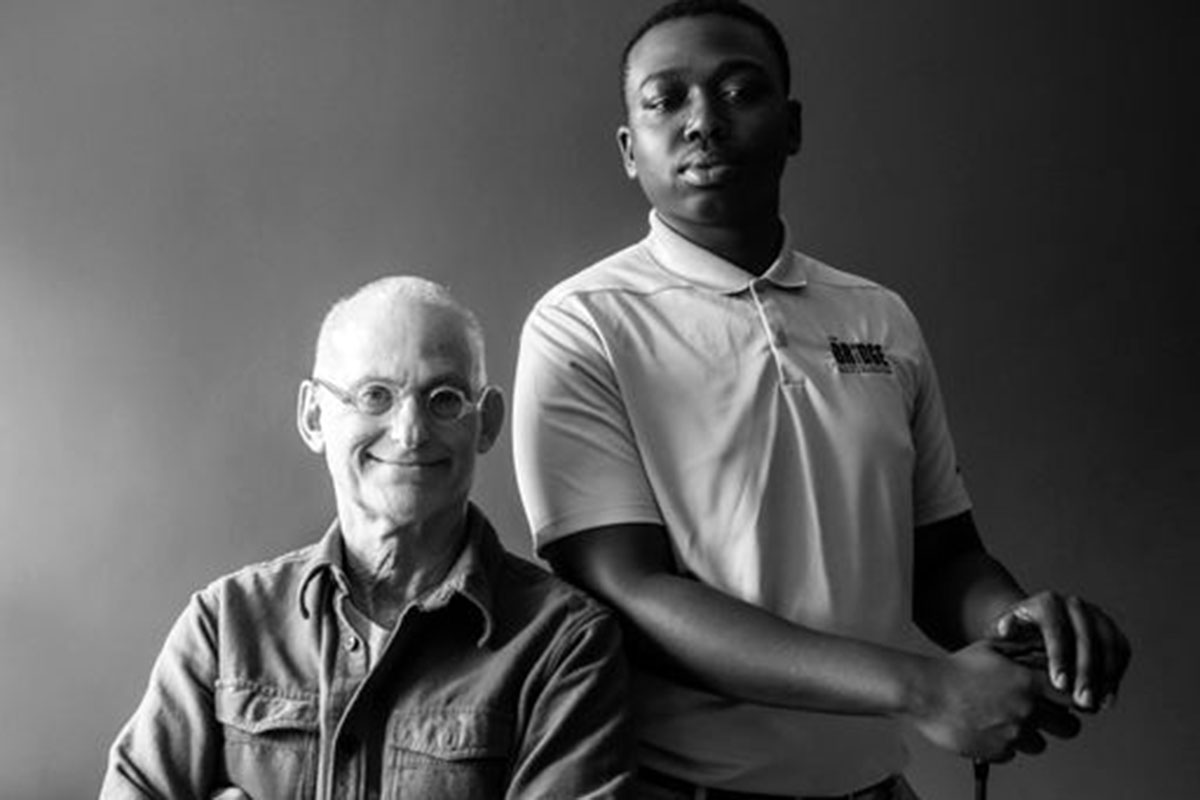Inside the Bridge Golf Learning Center.
Robert M. Rubin

Bob Rubin ’69 prides himself on learning things from the ground up. After all, he started trading commodities on Wall Street with a degree in American studies from Yale and no background in economics or finance. Then, after wrapping up a successful 25-year career, he bought 500 sprawling acres of land in Bridgehampton, New York, and founded his own golf club, The Bridge. At the time, Rubin was a recent but enthusiastic convert to the sport. “Once you hit a good shot, you’re hooked,” he says.
A new challenge came Rubin’s way in 2014 when he was asked if he’d be interested in launching a golf-based youth development organization in New York City. The idea: introduce young men of color to the sport and provide mentoring and tutoring programs as a way of opening up more academic and professional opportunities to them in the future.
Rubin was receptive to the idea, as he was well aware of the role education and privilege had played in his own life. After growing up in a working-class family in New Jersey, he attended Exeter on financial aid and graduated a year early, when he was only 15. “I was from a blue-collar background, and I went to these prep schools, Ivy League schools and Wall Street,” he says. “That access is not readily available to persons of color. Economic mobility in America is narrowing, not getting better.”
The result was the Bridge Golf Foundation and the Bridge Golf Learning Center, which opened in Harlem in 2016. Though Rubin started out in more hands-off roles as the organization’s main financial backer and real estate provider, he now serves as co-executive director along with his wife, Stéphane Samuel.
For three hours after school each weekday, around 50 students in grades nine through 12 come to the center for tutoring and mentoring programs as well as coaching in golf. The center boasts state-of-the-art golf simulators in three hitting bays, and a putt analysis and training system, and is open to the public when students aren’t in session. The foundation partners with underfunded, under-resourced public schools, and works closely with the school’s teachers and guidance counselors to identify students and provide the best support for each individual in the program. “Our partners like us because we’re not just looking for their highest-performing kids,” Rubin says. “We’re focused on the lost middle, the kids who are not good enough — or bad enough — to get noticed.”
Editor’s note: This feature first appeared in the Winter 2022 issue of The Exeter Bulletin.
Besides the year-round tutoring and golf at the center, young men enrolled in the program also attend a summer session at The Bridge, where construction was recently completed on a 28-bed dormitory, to spend a few weeks working in operations at the club, caddying and playing golf. In addition to the camaraderie and community, Rubin says it’s “a real networking opportunity” for the older students to interact with the golf club’s members, many of whom have helped fund the program itself and can offer internships to the young men.
The Bridge Golf Foundation supports its students through the college application process and beyond, helping them confront any obstacles on the way to their eventual graduation. As for himself, Rubin credits his three years at the Academy with forming the foundations for his successful academic and professional career. “Exeter really taught me how to think,” Rubin says. He also learned how to “triage” his time, a skill that served him particularly well in his hectic early days on Wall Street. “At Exeter you had more work than you could possibly do,” Rubin remembers. “It was a question of deciding what really mattered and doing that well.”
Longtime English Instructor Rod Marriott, a champion of theater at Exeter, was particularly influential in Rubin’s life. In 1994, Rubin created the B. Rodney Marriott Chair in the Humanities to honor his former teacher, who died in 1990; English Instructor Ralph Sneeden is the current chairholder. Rubin went on to pursue his own cultural passions in retirement, earning two graduate degrees and writing numerous books and articles about the artist Richard Prince, among others.
Rubin attributes at least part of his embrace of social justice philanthropy to another bond made at Exeter: his friendship with Patrick Lydon ’68, founder of the Ballytobin Camphill Community, a small residential farming community for children with special needs in Callan, Ireland. Rubin has supported Ballytobin for decades, and channels Lydon’s non sibi example in his work with the Bridge Golf Foundation. “Patrick is a real role model for me,” Rubin says. “He comes from a similar background, and had the benefits of this education, and he turned around and served his whole life.”
Since taking on co-executive duties at the Bridge Golf Foundation, Rubin’s cultural output may have decreased, but not his impact. “I’m focused on getting our kids in college and through college,” he says. “If I do this long enough, there will be a couple hundred kids whose lives have been fundamentally changed by our intervention, and that’s good.”
—Sarah Pruit ’95
Editor’s note: This article first appeared in the winter 2022 issue of The Exeter Bulletin.


